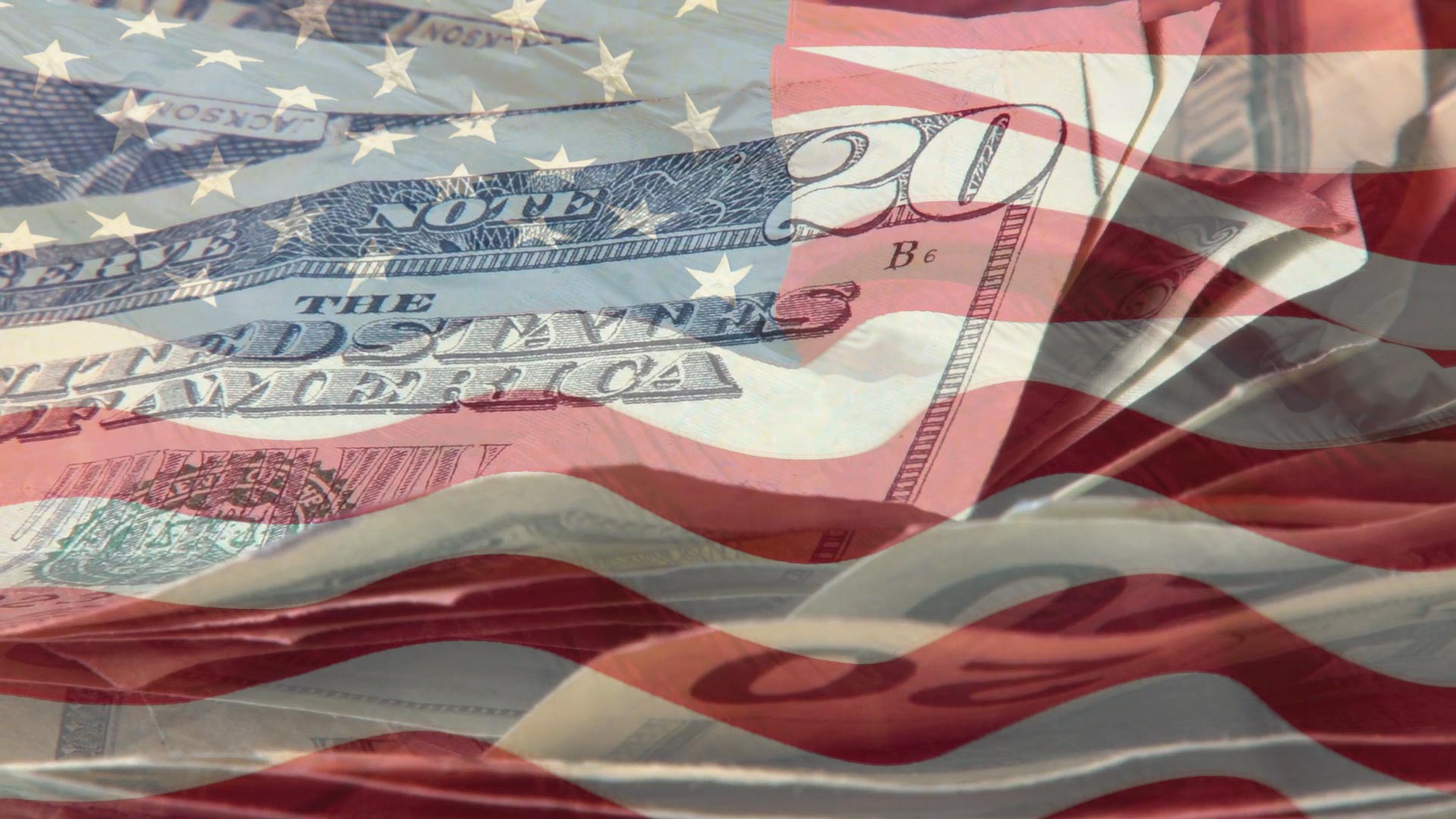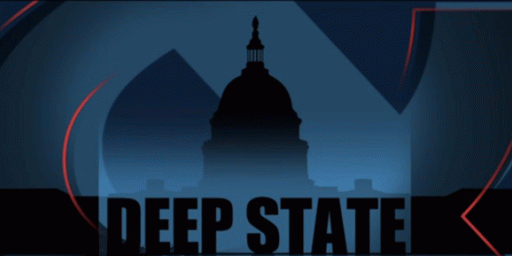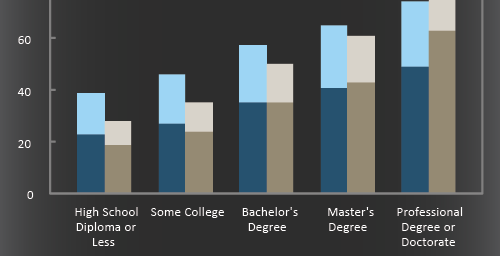Federal Employees Take Another Pay Cut
What's being billed as the largest hike in years is anything but.

Defense One (“Defense Civilians To Get Average 4.6% Pay Raise in 2023“):
President Biden on Wednesday formalized his plan to provide civilian federal workers with an average 4.6% 2023 pay increase in a letter to congressional leaders.
In March, Biden first announced his pay raise plan as part of his fiscal 2023 budget proposal, recommending the largest pay increase for civilian federal employees in two decades and nearly double the 2.7% average pay increase employees saw in 2022. Wednesday’s announcement confirms that, if implemented, federal employees would see an across-the-board boost in basic pay of 4.1%, and an average 0.5% increase in locality pay.
Which would be great if inflation were at 4.6% or less. But, of course, it was 8.5% or more. So, effectively, this is another 4% wage cut on top of the one from last year. Yet, everyone seems to be pretending otherwise:
In the letter, Biden said providing a sizeable pay increase is necessary for federal agencies to remain competitive with the private sector and attract and retain the next generation of civil servants.
“Federal agencies have witnessed growing recruitment and retention challenges with federal positions experiencing eroded compensation,” he wrote. “Multiple years of lower pay raises for federal civilian employees than called for under regular law have resulted in a substantial pay gap for federal employees compared to the private sector. The American people rely on federal agencies being managed and staffed by skilled, talented and engaged employees, including those possessing critical skills sets, which requires keeping federal pay competitive.”
Depending on who’s doing the comparison, federal employees either make dramatically more or dramatically less than our private sector counterparts. The main problem is that there’s seldom a direct comparison for most federal jobs.
Hilariously, advocates for federal employees seem to have somehow missed the news that we have 1970’s-style inflation.
Federal employee groups and some members of Congress have urged appropriators and the White House to implement a larger pay increase of 5.1% on average—split between a 4.1% increase in basic pay and a 1% increase in locality pay.
That’s right: the negotiating position was a 3.4% pay cut! We did pretty well given that.
National Active and Retired Federal Employees Association National President Ken Thomas applauded Biden’s pay plan for keeping pace with private sector wage growth.
“The president’s alternative federal pay plan will provide hardworking public servants the largest pay increase since 2002,” he said in a statement. “At an average of 4.6%, it tracks with recent increases in private-sector pay for the second consecutive year. As Americans face unprecedented price increases for food, fuel, housing and other staples, this pay raise demonstrates an understanding of the value of these hard-working civil servants and the jobs they do, as well as displays the administration’s commitment and recruitment and retention of talented federal employees.”
So, at least Thomas is aware of inflation. He’s just inumerate.
But some federal employee unions argued that while Biden’s plan is appreciated, they will continue to push for a 5.1% average pay increase.
“President Biden’s plan to provide an average 4.6% raise . . . for federal employees in 2023 would be the largest in 20 years and go a long way toward helping recruit and retain the public servants our government needs,” said Tony Reardon, national president of the National Treasury Employees Union. “However, NTEU earlier this year endorsed legislation for an average 5.1% increase because we believe rising costs of living and private sector wages warrant the larger raise . . . We will continue to urge Congress and the administration to consider changing economic conditions and the 22.47% pay gap between federal employees and their private sector counterparts before making any final decisions on the 2023 federal pay increase.”
“The overall 4.6% pay raise issued by President Biden will represent the largest pay adjustment for federal employees in 20 years,” said American Federation of Government Employees National President Everett Kelley. “However, in order to bring federal salaries close to market rates and compensate for the recent surge in inflation, more must be done.”
Because inflation has been so low most of the last few decades, I suppose it’s understandable that the focus of the unions* has been on private sector comparisons. It hasn’t been particularly effective: while the uniformed military has gotten massive pay hikes since the 9/11 attacks, the civil service has fallen well behind—with no pay raise at all in many years. And, given inflation, they’re shooting on the wrong target altogether right now.
______________________
*While more than half of federal employees are “bargaining unit employees” eligible to be represented by some sort of union, those of us in national security fields are not.






Sadly, 4.6 % is twice the “Cost living adjustment” I got this year. I would be thrilled 🙂
…and this is bad…how, exactly?
The old model was “lower pay, but job security”. The model in recent decades has been “higher compensation, more days off, PLUS job security”.
Pardon me if I do not weep for the bureaucrats.
@alanstorm: well, the “job security” that my government position offers me simply means that I have a quota to reach that everyone on the other side in private practice drops their jaws at. It’s the equivalent of having to do all the prep work for a legal case AND go to trial each day, every day of the week, over and over again.
Some “job security” when it requires 10 hour days.
And yeah, if I were in private practice I’d probably be earning half again. The reason I’ve been sticking it out here is because if people like me weren’t here, the US wouldn’t HAVE something that it is mandated by the Constitution to possess. So put that in your pipe and smoke it. You’re awfully unappreciative of those of us in public service. Maybe you should move to Somalia instead.
@grumpy realist: Spoken like someone who actually knows something, as opposed to yelling at the clouds.
To @grumpy realist point, working in Civic Tech I know a lot of people who are on the Government side and made a few observations:
1. A lot of those jobs are now based on a “tour” model which means limited job security (or rather that you can only work for the government for so long).
2. They are doing as much work as those of us on the outside.
3. The pay tends to be low, even compared with non-profit work.
4. To a person, they are choosing all of the above because they really believe in the importance of government and the need to improve the way it delivers services.
Its always disappointing to see how many people not only seem to see the government as their enemy, but also the people who are busting their humps working in said government as enemies.
@mattbernius:
I worked for a couple of decades in and with government at all levels from County Govt. to Federal 3-letter agencies. I can say that generally there are three categories of workers:
1) Mission-focused. They majored in public administration in college. They care deeply about the mission of the agency and work tirelessly to further that mission. They take the work very seriously and are keenly aware that dedication to the job and monetary compensation are not at all related to each other.
2) Stereotypical government worker. No sense putting off until tomorrow that which can be put off to the day-after-tomorrow. Can’t be fired, knows it. Shuffles around between the water cooler, the restroom, and their desk, and does just enough to get by. Knows everybody personally and retires with a full pension, having accomplished almost nothing.
3) Newly minted worker. Is in the government fresh out of school because they will give them fantastic opportunities to work with the latest technologies on very important projects, for little pay. Is using their government job to build a resume so they can go get paid somewhere else in < 5 years. Great workers, but you have to be careful about investing in their training.
Point is, let's not pretend they are all hard-working and dedicated civil servants. Yes, the #1s above get screwed by the pay system, but they do so with their eyes open.
My approach was always compassion for #1s, derision for #2s, and enthusiasm for #3s – and I often recruited the #3s away from government once I was on the outside.
@Tony W: Pretty much none of that is unique to governmental/civil service workers.
This is simply a pay cut, there is no other way to view it. However, with telecommuting, and maybe other factors (DC prices were already high, so some of the price increases may have been absorbed by merchants), I do wonder if inflation in the area was indeed 8%- of course this does not apply to other regions.
@grumpy realist:
@mattbernius:
The government has no shareholder value to maximize, so I assume this is a holdover from the 90s deficit fights, when positions like paid internships and such went out of fashion to save money.
In any case, it’s one of the many signs of a sick culture.
Is it possible to mandate wages be indexed to inflation nationwide? One thing that helped, a lot, during Mexico’s bout of very high inflation in the 1980s, was such a measure. And that minimum wages were revised monthly.
@mattbernius:
This is part of the overall push by the right to ensure American workers are as disposable as possible.
Federal government workers are, for the most part, treated the way ALL American workers should be treated. All workers should have ample vacation time and paid sick leave. All workers should have the worker protections government employees have. All workers should have good benefits. All workers should expect a high level of job security.
But that all goes against the profits first, workers last vision of American business, so the right has spent years sliming government employees, stirring up envy, etc. Because the last thing they want the average worker to do is to start asking why they don’t have what government workers have, and to start demanding what government workers have.
Calling this a pay cut is disingenuous. It is a 4.6% raise. The problem is that it fails to keep up with cost of living increases. The dollar amounts on folks paychecks will be higher (hence, a raise) but the buying power of those dollars has decreased. But *not* giving them the 4.6% raise would result in an even greater decrease in buying power.
The thing is, your 4.6% increase is likely higher than what most people will get. Most jobs in the civilian world do not have any annual pay adjustments at all.
@grumpy realist:
Not all civil service jobs are the same. I can’t speak for lawyers, but my time as a Defense Department civil servant was quite frustrating because of the number of people who skated by doing the minimum. One employee at our finance office frequently came to work drunk and they only way they managed to get her fired was by arranging for the police to arrest her and even that took months of paperwork.
The main problem with civil service work IMO is the crushing bureaucracy. Trying to get anything done or changed is exceedingly difficult. The process of rationalizing and adjusting positions and pay grades only happened once a decade. I happened to be in an organization that had seen significant increases in responsibilities. with no additional manning. In my case, I was a full-time intelligence analyst, the chief in charge of training other analysts, and the primary security manager for a 1000 person organization.
I mentioned before here that it was an entire year from the time I interviewed for the job until the time I actually started working. A YEAR. Even fast hires are measured in months. We lost a lot of good hires because they could not wait around months for a hiring decision.
I don’t bring this up as a “woe is me” anecdote but as an example of how dysfunctional the federal civil service is and how desperate it needs reform. Yet what passes for our politics could care less.
I left after five years. Most of the people I know still working are only doing it to get to the official retirement age.
Maybe other federal agencies are different, but that’s how it is in the DoD.
No offense to my federal friends, but they are getting a higher hike than most. Federal employees I know really do tend to be unmotivated, and all my friends waiting for retirement admit to just sliding by biding their time, unless they are trying to get to another GS level so they can collect even better retirement that no one else seems to get these days.
Don’t even get me started on the pay for private contractors for the feds. They have an amazing deal!
@Raoul:
Fine, but that means that other people who aren’t getting a renegotiation of their salaries this year have gotten a bigger one. And states that aren’t adjusting their minimum wages are plunging workers further into poverty. And states that are haven’t done enough to avoid doing it. And the beat goes on. And on. And on. And on.
Sucks to be James, I guess. But it may suck even worse to not be.
It’s not really a guarantee that inflation is going to end up being as high as 8.5%. Whatever in step raise an employee got plus the January raise might end up outpacing inflation.
@Jon: I have never worked for a private company where you couldn’t get fired, but I have worked next to state workers in that position.
@Tony W: Then I assume you have never worked for or with a family owned business.
@HelloWorld!:
Yeah, that’s another thing entirely… honestly, the restrictions that have been placed on Federal hiring in order (in many cases) to “get” those federal employees end up creating so amazing high paying and high charging jobs (at least on the tech side of things)
@Jon:
That’s been my experience as well. And also I have seen how hard it has been in the past to get people fired (especially in some larger corporations).